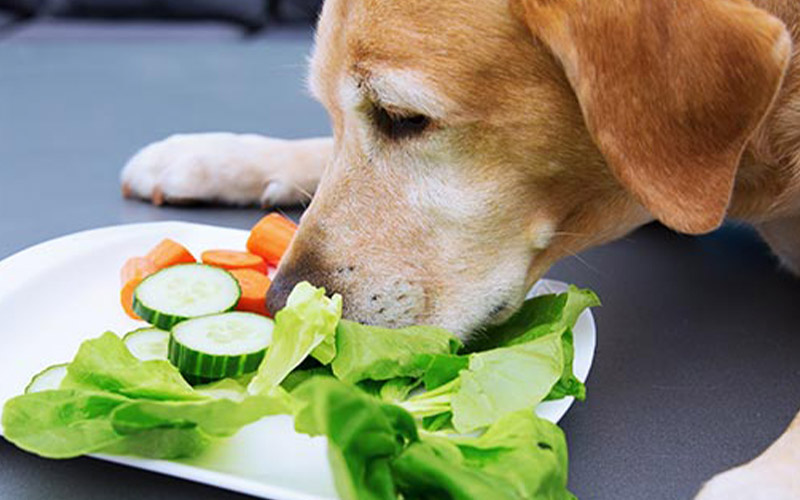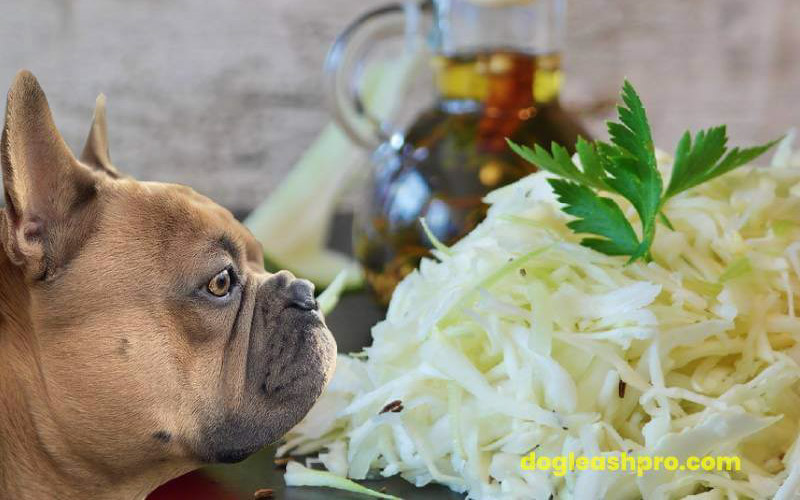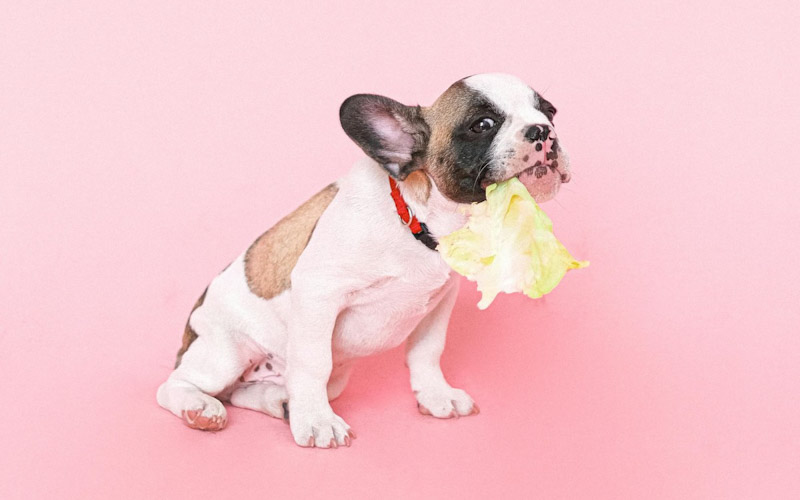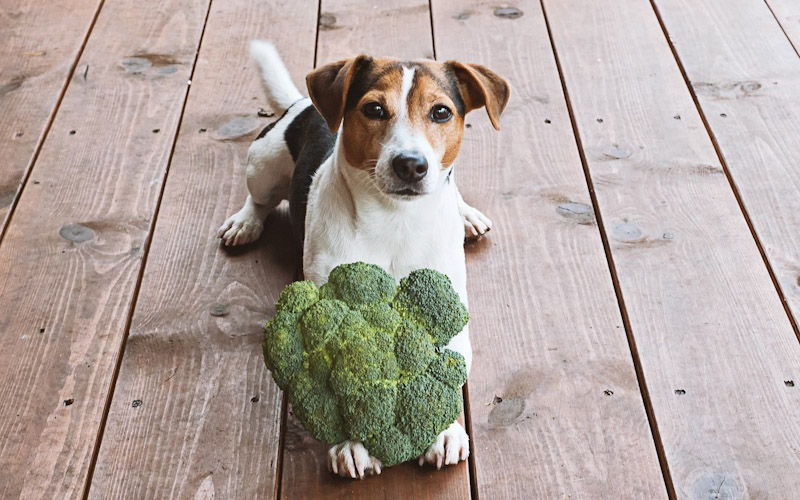As pet owners, ensuring our furry companions consume a balanced and safe diet is a top priority. Among the myriad of human foods that might tempt us to share with our dogs, coleslaw often comes under scrutiny. This popular side dish, typically composed of cabbage, carrots, and a creamy dressing, may seem like an innocent treat. However, before offering your dog a bite, it’s crucial to understand the potential implications for their health.

In this article, we delve into whether coleslaw is a suitable snack for dogs. We’ll explore the ingredients commonly found in coleslaw, assess their safety, and discuss any associated health risks. Additionally, we’ll provide insights from veterinary professionals and suggest healthier alternatives to ensure your dog’s diet remains nutritious and safe. Armed with this information, you can make well-informed decisions that support your dog’s overall well-being.
Understanding Coleslaw
Coleslaw is a popular salad dish made from finely shredded raw cabbage and often mixed with other vegetables like carrots. Typically, it is dressed with a creamy sauce, such as mayonnaise or a vinaigrette. While coleslaw is a staple at many meals, its ingredients have varying implications for canine health.
Ingredients Overview
- Cabbage: The primary ingredient in coleslaw, cabbage, is rich in fiber and essential nutrients like vitamins C and K. It is low in calories and can aid in digestion when given in moderation. However, raw cabbage can sometimes cause gastrointestinal issues in dogs, such as gas or bloating, especially if consumed in large amounts.
- Carrots: Carrots are another common component of coleslaw. They are generally safe for dogs and provide a good source of vitamins A and K, as well as fiber. Carrots can support eye health and digestive function in dogs, making them a beneficial addition to their diet when offered in appropriate quantities.
- Mayonnaise: Mayonnaise is used in many coleslaw recipes to create a creamy texture. While it is not toxic to dogs, it is high in fat and calories. Excessive consumption can lead to weight gain and digestive upset, and in some cases, may contribute to conditions such as pancreatitis.
- Additional Ingredients: Some coleslaw recipes include other ingredients like onions, garlic, or various spices. These additions can be harmful or toxic to dogs. Onions and garlic, for instance, are known to cause severe health issues, including gastrointestinal distress and damage to red blood cells.
Nutritional Content: While cabbage and carrots offer beneficial nutrients, the high fat and calorie content from mayonnaise can overshadow these benefits when it comes to canine health. Dogs require a balanced diet tailored to their specific needs, and human foods like coleslaw should be evaluated carefully to avoid potential risks.

Potential Health Risks for Dogs
While coleslaw might seem like an innocuous treat, it poses several potential health risks for dogs, primarily due to its ingredients and their effects on canine digestion.
Gastrointestinal Issues
One of the primary concerns with feeding coleslaw to dogs is its high-fat content, particularly from ingredients like mayonnaise. Mayonnaise, commonly used in coleslaw for its creamy texture, is rich in fat and calories. When dogs consume high-fat foods, they may experience gastrointestinal issues such as diarrhea, vomiting, and abdominal discomfort. Dogs’ digestive systems are not well-equipped to handle excessive fat, and high-fat diets can lead to inflammation of the pancreas, known as pancreatitis. This serious condition can cause severe abdominal pain and may require veterinary treatment.
Toxic Ingredients
Additionally, some coleslaw recipes may include ingredients that are toxic to dogs. Onions and garlic, for example, are often used in coleslaw dressings for added flavor. Both onions and garlic contain compounds that are harmful to dogs and can lead to significant health problems. Onions can cause gastrointestinal upset and damage red blood cells, leading to anemia. Garlic, though less potent than onions, can also cause gastrointestinal issues and affect red blood cells, potentially resulting in lethargy and weakness.
Impact of Excessive Consumption
Even without toxic ingredients, the overall impact of feeding coleslaw to dogs can be detrimental if given in large amounts. The excessive fat and calorie content can contribute to obesity, which poses its own set of health risks, including joint problems, diabetes, and heart disease. Additionally, frequent consumption of high-fat foods can exacerbate pre-existing health issues and strain a dog’s digestive system.
In summary, while a small amount of coleslaw may not cause immediate harm, its potential to lead to gastrointestinal distress, obesity, and other health concerns makes it a less-than-ideal treat for dogs. Pet owners should be cautious and consider the health implications before offering such foods to their canine companions.
Expert Opinions on Feeding Dogs Human Food
When it comes to feeding dogs human food, veterinarians often emphasize caution. The general consensus among pet health professionals is that while some human foods are safe for dogs, many can pose risks, particularly those that are high in fat or contain harmful ingredients.
Veterinary Insights
Veterinarians frequently advise against feeding dogs human food due to the potential for digestive issues and nutritional imbalances. Human foods, especially those rich in fats, sugars, and additives, can upset a dog’s digestive system and lead to health problems such as obesity, pancreatitis, and gastrointestinal distress. In particular, foods that are seasoned or prepared with ingredients like onions, garlic, or excessive salt should be avoided, as they can be toxic to dogs and cause serious health complications.

Veterinary advice often highlights the importance of maintaining a balanced diet specifically formulated for dogs. Commercial dog foods are designed to meet all of a dog’s nutritional needs, whereas human foods may not provide the right balance and can introduce unnecessary risks.
Professional Recommendations
Experts recommend focusing on dog-safe treats and avoiding human foods that can lead to health issues. Safe alternatives include:
- Plain Cooked Vegetables: Carrots, green beans, and sweet potatoes are nutritious options that can be given in moderation.
- Lean Proteins: Small amounts of plain, cooked chicken or turkey can be a healthy treat.
- Dog-Specific Treats: Commercial treats formulated for dogs are designed to be nutritionally balanced and are a safer choice.
In conclusion, while it might be tempting to share your food with your dog, adhering to a diet specifically designed for canine health is the best practice. Consulting with your veterinarian about any new treats or foods you plan to introduce into your dog’s diet can help ensure their well-being and prevent potential health issues.
Healthy Alternatives to Coleslaw
While coleslaw might not be the best choice for your dog, there are plenty of healthy alternatives that can provide nutritious and safe treats. Here are some excellent options:
Safe Vegetables
- Carrots: Raw or cooked, carrots are a fantastic treat for dogs. They are rich in beta-carotene, fiber, and vitamins A and K. Carrots also help with dental health by naturally cleaning dogs’ teeth as they chew.
- Green Beans: These are low in calories and high in fiber and vitamins. Green beans can be served cooked or raw, but avoid seasoning them to keep them dog-friendly.
- Sweet Potatoes: Cooked sweet potatoes are a great source of vitamins A and C, fiber, and antioxidants. They are easily digestible and can be served in small, plain pieces.
- Pumpkin: Plain, cooked pumpkin is excellent for digestive health due to its high fiber content. It can help with both constipation and diarrhea in dogs.
Homemade Dog Treats
- Peanut Butter Biscuits: Combine whole wheat flour with natural peanut butter (without xylitol) and a bit of water. Shape into small biscuits and bake. These treats are high in protein and healthy fats, but should be given in moderation due to their calorie content.
- Banana and Oat Cookies: Mix mashed bananas with oats and a touch of water. Bake the mixture into small cookies. Bananas are high in potassium and fiber, making this treat both nutritious and tasty.
- Chicken and Sweet Potato Bites: Blend cooked chicken with mashed sweet potatoes, form into small balls, and bake. This combination is both flavorful and packed with beneficial nutrients.
Commercial Dog Treats
- Blue Buffalo Wilderness Treats: Known for their natural ingredients and high protein content, these treats are grain-free and formulated to support overall health.
- Wellness CORE RawRev: These treats combine high-quality protein with a boost of raw, freeze-dried meat, providing a nutritious option for dogs needing extra protein.
- Zuke’s Mini Naturals: These treats are small, low-calorie, and come in a variety of flavors. They are made with natural ingredients and are ideal for training or occasional rewards.
By choosing these healthy alternatives, you can ensure your dog enjoys safe and nutritious treats that support their well-being, without the risks associated with coleslaw.

Conclusion
In summary, while coleslaw might be a popular dish for humans, it’s not the best choice for your canine companion. The high-fat content from mayonnaise, combined with potential toxic ingredients like onions and garlic, can pose significant health risks for dogs. Furthermore, the impact of excessive consumption can lead to serious issues such as pancreatitis and obesity.
Veterinarians consistently recommend focusing on a balanced diet tailored to canine needs and suggest avoiding human foods that can cause digestive problems or health complications. Instead, consider offering your dog safe, nutritious alternatives such as carrots, green beans, and homemade treats like peanut butter biscuits or banana-oat cookies. For convenience and balanced nutrition, high-quality commercial dog treats are also a great option.
By making informed choices about what your dog eats and prioritizing their dietary health, you can ensure they enjoy a happy and healthy life. If you have any doubts or need personalized advice, consult with your veterinarian to determine the best treats and foods for your dog’s specific needs.
Take action today by removing coleslaw and other potentially harmful human foods from your dog’s diet and exploring the healthier alternatives provided. Your furry friend will thank you for it with tail wags and joyful leaps!